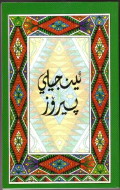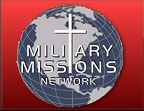Holidays offer great opportunities to start or strengthen relationships. The two holiest days in Islam are Eid ul-Adha and Eid ul-Fitr. Eid ul-Adha is the Feast of Sacrifice. It concludes the period set aside for the pilgrimage to Mecca called the Hajj, and it commemorates Abraham’s willingness to sacrifice his firstborn son. Eid ul-Fitr is the Feast of Breaking the Fast. It concludes the fasting month of Ramadan during which Muslims refrain from eating and drinking during daylight hours. Both of these times of feasting and celebration start at sunset and last for two or three days. Here are some ideas for leveraging this feast day in your relationships.
1. It is a time of giving sweets to each other and to children. Give your friend or neighbor a plate of candy, cake, or cookies to help them celebrate.
2. It is a time of giving small gifts to children. Give your friend or neighbor something simple for the children.
3. It is a time for holiday greeting card exchange. Give or mail your friend or neighbor an “Eid Mubarak” greeting card. You can make this yourself with images collected from the Internet or you can order one from a dealer on the Internet.
4. It is a time for sending text-message and e-mail holiday greetings. Send your friend or neighbor an “Eid Mubarak” or “Happy Feast Day” e-mail or text-message as they begin their celebrations.
5. It is a time when Muslims drop in on each other (often with house gifts). It’s a time when they expect and are prepared for visitors. These holidays are good times to visit your Muslim friend or neighbor to introduce yourself or build your relationship. You won’t necessarily need an appointment, but they may be out doing their own spontaneous visiting.
6. It is a time when Muslims ask for forgiveness from one another for any unspecified offenses that they may have committed against each other during the preceding year. Ask your Muslim friend or neighbor for general forgiveness on these days. Do not mention any specific offenses! Say something like, “If I’ve done anything to offend you in the time that we’ve known each other, will you please forgive me?”
7. It is a time of heightened religious awareness and instruction. It is a good time to ask questions about Islam and Muslim culture, especially about the holiday. However, do not criticize or try to speak knowledgeably about Muhammad or Islam. “Stay in your lane!” You may present yourself as the subject matter expert on Jesus, Christmas, and communion. Let them be the subject matter experts on all things Muslim.
Finally, in thoroughly unevangelized lands, some Muslims meet Jesus in visions and dreams (MoreThanDreams.org). Jesus-in-you, however, may be the only Jesus your Muslim friend or neighbor can be expected to ever meet. Jesus may want you to go out of your way so that he can meet some of your friends and neighbors who he would otherwise never get to know.
 The New Testament in all three Kurdish dialects is on line at
The New Testament in all three Kurdish dialects is on line at 






 Act Beyond
Act Beyond http://www.faithandwar.org
http://www.faithandwar.org Mark Durie's Blog
Mark Durie's Blog Military Missions Network
Military Missions Network The Christian Fighter Pilot
The Christian Fighter Pilot The Navy Christian
The Navy Christian